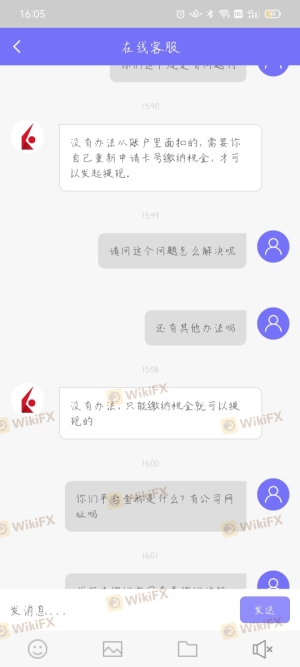Regarding the legitimacy of Interactive Brokers forex brokers, it provides ASIC, FCA, CBI, MAS and WikiBit, (also has a graphic survey regarding security).
Is Interactive Brokers safe?

Pros
Cons
Is Interactive Brokers markets regulated?
The regulatory license is the strongest proof.
ASIC Market Making License (MM)
Australia Securities & Investment Commission
Australia Securities & Investment Commission
Current Status:
UnverifiedLicense Type:
Market Making License (MM)
Licensed Entity:
INTERACTIVE BROKERS AUSTRALIA PTY LTD
Effective Date: Change Record
2016-07-28Email Address of Licensed Institution:
regquery_apac@interactivebrokers.comSharing Status:
No SharingWebsite of Licensed Institution:
--Expiration Time:
--Address of Licensed Institution:
L 11 175 PITT ST SYDNEY NSW 2000Phone Number of Licensed Institution:
0272510088Licensed Institution Certified Documents:


FCA Market Making License (MM)
Financial Conduct Authority
Financial Conduct Authority
Current Status:
UnverifiedLicense Type:
Market Making License (MM)
Licensed Entity:
Interactive Brokers (U.K.) Limited
Effective Date: Change Record
2002-02-06Email Address of Licensed Institution:
complianceuk@interactivebrokers.co.uk, ibukcomplaints@interactivebrokers.co.ukSharing Status:
No SharingWebsite of Licensed Institution:
www.interactivebrokers.co.ukExpiration Time:
--Address of Licensed Institution:
Interactive Brokers (UK) Ltd 20 Fenchurch Street London City Of London EC3M 3BY UNITED KINGDOMPhone Number of Licensed Institution:
+442077105630Licensed Institution Certified Documents:


CBI Market Making License (MM)
Central Bank of Ireland
Central Bank of Ireland
Current Status:
UnverifiedLicense Type:
Market Making License (MM)
Licensed Entity:
Interactive Brokers Ireland Limited
Effective Date:
2020-12-22Email Address of Licensed Institution:
--Sharing Status:
No SharingWebsite of Licensed Institution:
--Expiration Time:
--Address of Licensed Institution:
2 Dublin LandingsNorth Wall Quay North DockDublin 1Phone Number of Licensed Institution:
--Licensed Institution Certified Documents:


MAS Market Making License (MM)
Monetary Authority of Singapore
Monetary Authority of Singapore
Current Status:
UnverifiedLicense Type:
Market Making License (MM)
Licensed Entity:
INTERACTIVE BROKERS SINGAPORE PTE. LTD.
Effective Date:
--Email Address of Licensed Institution:
--Sharing Status:
No SharingWebsite of Licensed Institution:
http://www.interactivebrokers.comExpiration Time:
--Address of Licensed Institution:
1 HARBOURFRONT PLACE #12-01 HARBOURFRONT TOWER 1 098633Phone Number of Licensed Institution:
+65 69905200Licensed Institution Certified Documents:


Is Interactive Brokers A Scam?
Introduction
Interactive Brokers (IBKR) is a prominent online brokerage firm that has carved a significant niche in the global trading landscape, particularly in the foreign exchange (forex) market. Founded in 1978 by Thomas Peterffy, the firm has grown to become one of the largest electronic trading platforms in the United States, known for its advanced trading tools and competitive pricing. However, the rise of online trading has also led to an increase in scams and fraudulent activities, making it crucial for traders to carefully evaluate the legitimacy and safety of their chosen brokers.
The decision to engage with a brokerage like Interactive Brokers should not be taken lightly. Traders must consider various factors, including regulatory compliance, company history, trading conditions, and customer feedback. This article aims to provide a comprehensive analysis of Interactive Brokers, assessing its safety and legitimacy based on a combination of narrative insights and structured information. The evaluation will draw from various credible sources, including regulatory filings, customer reviews, and industry reports.
Regulation and Legitimacy
A broker's regulatory status is a critical factor in assessing its legitimacy. Interactive Brokers is regulated by several top-tier financial authorities, which adds a layer of security for its clients. The firm's adherence to these regulations ensures that it operates under strict guidelines designed to protect investors and maintain market integrity.
| Regulatory Body | License Number | Regulatory Region | Verification Status |
|---|---|---|---|
| U.S. Securities and Exchange Commission (SEC) | 8-47257 | United States | Verified |
| Financial Industry Regulatory Authority (FINRA) | 36418 | United States | Verified |
| Commodity Futures Trading Commission (CFTC) | 1-00198 | United States | Verified |
| Financial Conduct Authority (FCA) | 208159 | United Kingdom | Verified |
| Central Bank of Ireland | N/A | Ireland | Verified |
The regulatory quality of Interactive Brokers is robust, as it is subject to oversight by multiple agencies, including the SEC and FINRA in the U.S. These regulators enforce compliance with financial laws and protect investors from fraudulent activities. Historically, Interactive Brokers has faced regulatory scrutiny, including fines for compliance lapses; however, these instances are not uncommon in the industry and do not necessarily indicate a systemic issue with the brokerage. Overall, the firms regulatory framework appears to be strong, and its compliance history, while not flawless, demonstrates a commitment to adhering to industry standards.
Company Background Investigation
Interactive Brokers has a rich history marked by innovation and growth. Established in 1978, the firm was one of the first to leverage technology for trading, introducing computer-assisted trading systems that revolutionized the brokerage industry. Over the years, it has expanded its services globally, now operating in over 150 market centers across 34 countries.
The ownership structure of Interactive Brokers is primarily held by its founder, Thomas Peterffy, and a consortium of private equity investors. This structure allows for a strong alignment of interests between the management and shareholders, fostering a culture of accountability and transparency. The management team is composed of experienced professionals with extensive backgrounds in finance and technology, further enhancing the firm's credibility.
In terms of transparency, Interactive Brokers provides detailed financial disclosures, including quarterly and annual reports. The firm is also publicly traded on the NASDAQ, which mandates a higher level of scrutiny and accountability. This level of transparency is crucial for investors, as it offers insights into the firm's financial health and operational practices.
Trading Conditions Analysis
Interactive Brokers is known for its competitive pricing structure, which appeals to both retail and institutional traders. The firm's fee model is designed to cater to a wide range of trading styles, from casual investors to high-frequency traders.
The overall fee structure includes:
| Fee Type | Interactive Brokers | Industry Average |
|---|---|---|
| Major Currency Pair Spread | Variable | 1.0-2.0 pips |
| Commission Model | $0 for IBKR Lite; $0.0005-$0.0035 per share for IBKR Pro | $0.005-$0.01 per share |
| Overnight Interest Range | 5.0%-6.0% | 6.0%-8.0% |
The IBKR Lite plan offers commission-free trading for U.S. stocks and ETFs, making it attractive for casual investors. However, it is essential to note that IBKR Lite users may experience slightly lower execution quality due to the payment for order flow model. On the other hand, the IBKR Pro plan is aimed at active traders, offering tiered pricing that rewards higher trading volumes with lower commissions.
While the fee structure is generally favorable, some users have reported confusion regarding the various commission models and potential hidden fees. This complexity can be a deterrent for less experienced traders who may find it challenging to navigate the pricing structure effectively.
Client Fund Safety
The safety of client funds is paramount when choosing a brokerage. Interactive Brokers employs several measures to ensure the security of its clients' assets. The firm maintains segregated accounts, meaning that client funds are kept separate from the company's operational funds. This practice is crucial in the event of financial difficulties, as it protects clients' assets from being used to cover the broker's debts.
Additionally, Interactive Brokers is a member of the Securities Investor Protection Corporation (SIPC), which provides insurance coverage up to $500,000 per customer, including a cash sub-limit of $250,000. For clients with larger accounts, the firm offers supplemental insurance through Lloyd's of London, which extends coverage up to an additional $30 million.
Despite these robust safety measures, it is important to note that Interactive Brokers holds client securities in "street name," meaning that the brokerage is the legal owner of the assets. While this practice is standard in the industry, it can raise concerns about the accessibility of funds in the event of insolvency.
Client Experience and Complaints
Customer feedback is a vital component of evaluating a brokerage's reliability. Interactive Brokers has received a mix of positive and negative reviews from users. Many clients praise the firm's advanced trading tools and competitive pricing, while others express frustration with customer service and the complexity of the trading platform.
| Complaint Type | Severity | Company Response |
|---|---|---|
| Customer Service Delays | High | Slow response times reported |
| Platform Usability Issues | Medium | Ongoing improvements acknowledged |
| Account Verification Problems | High | Increased scrutiny during KYC processes |
Common complaints include long wait times for customer support and difficulties navigating the trading platform. Some users have reported challenges with the account verification process, especially during heightened regulatory scrutiny. While Interactive Brokers has taken steps to improve customer service, these issues have led to dissatisfaction among some clients.
One notable case involved a trader who experienced significant delays in account verification, leading to missed trading opportunities. While the company ultimately resolved the issue, the experience highlighted potential weaknesses in their customer support infrastructure.
Platform and Execution
Interactive Brokers' trading platform, particularly the Trader Workstation (TWS), is regarded as one of the most powerful in the industry. It offers a wide range of features, including advanced charting tools, real-time data, and sophisticated order types. However, the platform's complexity can be intimidating for new users.
The quality of order execution is generally high, with the firm claiming to execute 100% of trades at or better than the national best bid and offer (NBBO) price. Nevertheless, some users have reported instances of slippage, particularly during periods of high volatility.
The firm has implemented various safeguards to prevent market manipulation, and its automated risk management system is designed to protect both the brokerage and its clients from significant trading losses.
Risk Assessment
Using Interactive Brokers comes with its own set of risks, which traders should be aware of before opening an account.
| Risk Category | Risk Level (Low/Medium/High) | Brief Explanation |
|---|---|---|
| Regulatory Compliance | Medium | Past fines indicate compliance risks |
| Customer Service | High | Reports of slow response times |
| Platform Complexity | Medium | Steep learning curve for new users |
To mitigate these risks, potential users should thoroughly research the platform, consider starting with a demo account, and familiarize themselves with the trading tools available. Engaging in continuous education through the firm's resources can also help traders navigate the complexities of the platform and improve their trading skills.
Conclusion and Recommendations
In conclusion, Interactive Brokers is a legitimate brokerage with a long-standing reputation in the industry. While it offers numerous advantages, including competitive pricing and advanced trading tools, there are areas of concern, particularly regarding customer service and the complexity of its platform.
Traders should be vigilant and conduct their due diligence before engaging with Interactive Brokers. While there are no clear signs of fraudulent activity, potential users should weigh the benefits against the risks, especially if they are inexperienced or require more hands-on support.
For those seeking alternatives, brokers like Charles Schwab or Fidelity may offer a more user-friendly experience, especially for beginners or casual investors. Ultimately, the choice of broker should align with individual trading needs and risk tolerance.
Is Interactive Brokers a scam, or is it legit?
The latest exposure and evaluation content of Interactive Brokers brokers.

Interactive Brokers Similar Brokers Safe
Whether it is a legitimate broker to see if the market is regulated; start investing in Forex App whether it is safe or a scam, check whether there is a license.
Interactive Brokers latest industry rating score is 1.49, the higher the score the safer it is out of 10, the more regulatory licenses the more legitimate it is. 1.49 If the score is too low, there is a risk of being scammed, please pay attention to the choice to avoid.